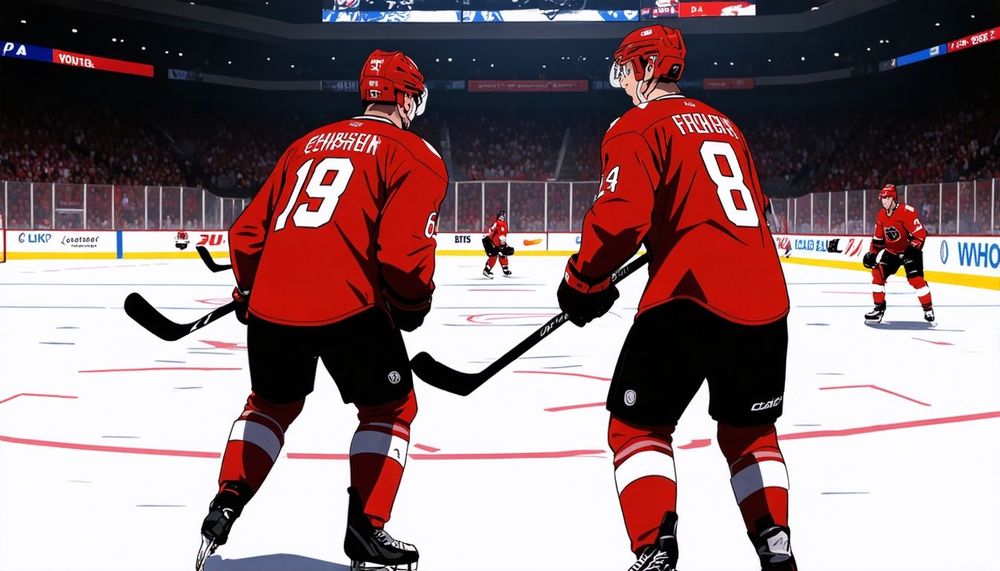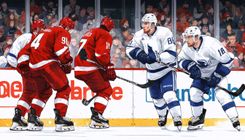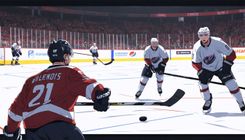Navigating Pressure in the NHL: A Look at Teams Under Strain

In the National Hockey League (NHL), pressure can manifest in various forms across different teams. While some franchises focus on improvement and aiming for playoff contention, others face the intense burden of expectations tied to winning the Stanley Cup. The challenges of sustaining success are particularly pronounced for those teams that consistently fall short, prompting tough conversations as seasons end without championship achievements. This analysis will delve into select teams grappling with the weight of expectation and the potential necessity for transformative changes.
The Toronto Maple Leafs, who have endured playoff disappointments in recent years, stand at a crossroads. The team's management faced the difficult decision to part ways with Mitch Marner this summer when it became evident that he was unwilling to sign with the franchise. While the loss of a top-10 player is significant, the Leafs retain star talents such as Auston Matthews, William Nylander, and John Tavares, along with Matthew Knies's extension. Nevertheless, questions linger regarding the team's defense, now another year older, and whether Morgan Rielly can fulfill his role as the top defenseman. Additionally, the health and performance of goaltenders Joseph Woll and Anthony Stolarz will be critical as the team seeks to improve. General Manager Brad Treliving's summer moves suggest a desire to create a more physical team capable of contending with the likes of the Florida Panthers, Ottawa Senators, and Montreal Canadiens. Should Toronto fail to make strides, the organization may be forced to consider significant changes, including a potential retooling headed by star players like Matthews.
For the New York Rangers, the recent offseason has come with its own set of challenges. Following a disappointing season marked by the desire for improvement, the team has taken strides in a new direction under head coach Mike Sullivan. The offseason saw the Rangers trade away Chris Kreider and K'Andre Miller, which may have raised questions regarding their commitment to immediate playoff success. By reallocating resources for acquisitions like J.T. Miller and Vladislav Gavrikov, the Rangers demonstrate a strategic shift. With a talented core featuring Mika Zibanejad, Artemi Panarin, Adam Fox, Alexis Lafrenière, and Vincent Trocheck, the team has the potential for success. However, the looming free agency of Panarin adds another layer of urgency; a second consecutive offseason without a Cup victory may trigger even more drastic changes as the organization strives to contend for a championship.
The Los Angeles Kings have faced a formidable challenge in recent playoff campaigns, repeatedly falling short against the Edmonton Oilers. Following last year's defeat, the Kings' front office underwent significant changes, with Rob Blake departing as General Manager and Ken Holland stepping in. Holland recognizes the team's reliance on veteran stars like Anze Kopitar and Drew Doughty, indicating a transition toward a more experienced defensive corps through signings such as Cody Ceci and Brian Dumoulin. Despite possessing a promising collection of younger players like Quinton Byfield, Brandt Clark, Alex Laferriere, and Alex Turcotte, the team must navigate the delicate balance of blending youth and experience. Should the Kings' aging roster struggle to compete with the Oilers again or similarly falter in the postseason, the organization may need to contemplate moving on from some of its veteran players to ensure long-term success.
Another team facing significant pressure is the Washington Capitals. The previous summer's free agency moves were met with mixed interpretations—some viewed them as desperate attempts to maintain playoff hopes for Alex Ovechkin, while others saw opportunities to capitalize on unexpected success in recent seasons. The addition of defenseman Jakob Chychrun was a strategic move intended to enhance the blue line and support John Carlson. As a result, the Capitals achieved remarkable regular-season success, finishing as the best team in the Eastern Conference. With Ovechkin's tenure assured in Washington, the management must now devise a plan for life beyond his illustrious career. If the Capitals fail to build upon last season's achievements and drive toward a Stanley Cup victory, determining the course of future franchise directions will take on greater urgency.
The Dallas Stars also find themselves at a pivotal moment, recently undergoing a coaching change after another postseason exit at the hands of the Western Conference champion. The team has brought back Glen Gulutzan, who previously coached the Stars from 2011 to 2013. The transition to a new coach can often yield fresh perspective and impact on Cup-contending teams. However, the looming question surrounding Jason Robertson complicates the scenario. As an elite forward approaching restricted free agency, Robertson's outstanding performance necessitates a significant contract. With considerable cap space already allocated to key players following the substantial extension awarded to Mikko Rantanen, the Stars face a potential dilemma. If the team again struggles to make a deep playoff run, trading Robertson may become an pivotal consideration for maintaining financial flexibility, although this would not be a complete dismantling but a necessary adjustment to remain competitive.
Lastly, the Edmonton Oilers are firmly entrenched in a 'win-now' mindset, having come agonizingly close to capturing the Stanley Cup in recent years. After a seven-game series defeat to the Panthers in 2024, the Oilers faced disappointment once more following a five-game loss to the same opponent this past summer. Despite their impressive playoff runs through the Western Conference, challenges persist, especially when contending with teams like the Kings and Stars, as well as rising threats from Vancouver and Vegas. As the Oilers enter another season, the future of superstar Connor McDavid looms large. Should the team fall short of their championship aspirations again and McDavid decline to extend his contract, the implications for the franchise could be profound, potentially necessitating a reevaluation of their competitive strategy.









